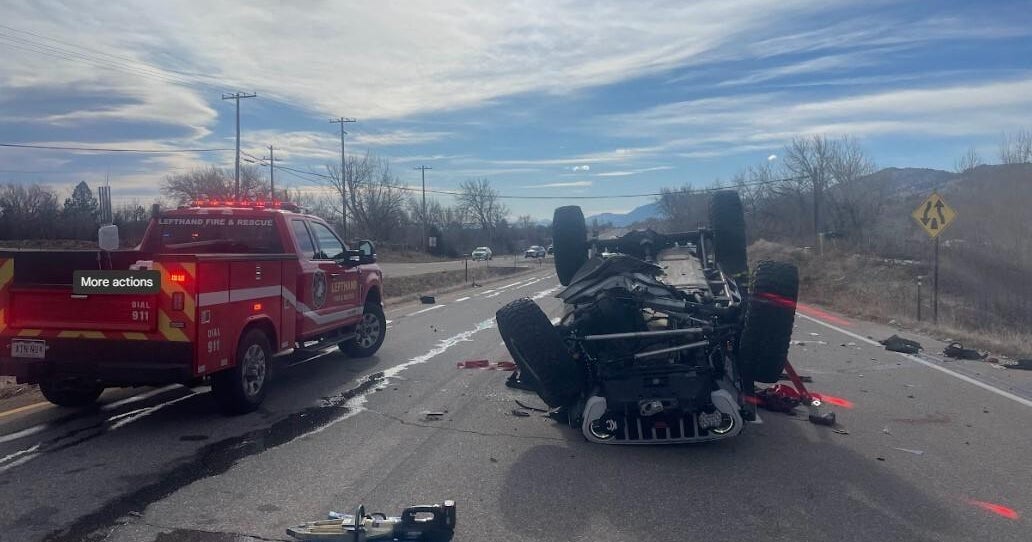3 Jefferson County fire districts in one of the highest wildfire risk areas in country may merge
Jefferson County voters are weighing a fire merger that could have far-reaching impacts.
Voters are being asked to consolidate Elk Creek, Inter-Canyon, and North Fork fire districts to create Conifer Fire. The new district would cover 400 square miles or about half of Jefferson County.
While about 24,000 people live in the area, they aren't the only ones with a stake in what happens. The watershed in the area supplies 80% of Denver's water, so a wildfire there could have a big impact on Denverites.
Wildfires are nothing new to southern Jefferson County, which is home to the burn scars of the Hayman Fire, Lower North Fork Fire and Deer Creek Canyon Fire, among others. But when the U.S. Forest Service ranked the area as one of the top ten most at risk of catastrophic wildfire in the country, it was a wakeup call.
"I'm worried that one day ... we'll have a catastrophic wildfire in this district and we won't be as prepared as we could've been," said Bethany Urban, a member of the Elk Creek Firefighters Local 4710.
Elk Creek is the only fire district in the area that is staffed 24/7, with four firefighter/paramedics per shift. North Fork and Inter-Canyon Fire Protection Districts rely almost entirely on volunteers.
"None of these local fire departments -- Inter-Canyon, North Fork or Elk Creek -- actually have the resources on their own to handle a structure fire alone, to handle a wildfire alone, to handle a multi-vehicle accident alone. We always have to call mutual aid," said Urban.
She says calls have increased by 300 a year in just the last five years.
Ken Shine, a volunteer firefighter in Elk Creek says they often get multiple calls at a time.
"It does worry me when we are all tied up with one call, what happens when the second call or the third or even the fourth comes in at the same time?" he said.
He says that's happening more and more as the population in the area grows and ages, which is why the fire districts commissioned a study three years ago to see if they should merge.
Based on the results, voters are now being asked to consider a $2.5 million property tax increase over the next five years to create a new fire protection district with 24/7 staffing for the entire area.
Neil Whitehead III, who lives in Elk Creek opposes the merger.
"And I have a feeling that much of this mill levy increase is going to just backfill inflation that's taking place and they will come back in a year or two and say, 'well now that you have consolidated but we can't go back, we have to go forward,'" he said.
He worries Elk Creek will lose its independence and he says because it has more residents than Inter-Canyon and North Fork combined - it will be subsidizing service for others.
"They're in effect using the wealth of Elk Creek Fire Protection District to build up their districts," he said.
Urban says Elk Creek calls North Fork and Inter-Canyon for mutual support far more than they call Elk Creek.
"It is not the time to say, 'Only us,''' she said. "It not the time to say, 'We don't need anybody else and we don't need to help anybody else and we can do it ourselves.' Emergency services does not work in a bubble, wildfire does not burn in a bubble and we need to be helping each other."
Whitehead says a lot of details, like how the merger will be accomplished and where the money will go, are missing.
Urban insists supporters have released everything they know so far, which includes where fire stations will be located, for example, how many additional paid firefighters will be hired? 18. And the estimated cost to homeowners, an additional $8 to $14 a month.
In order for the merger to happen, voters in each fire district will have to approve two ballot measures. If any one of the six fails, the consolidation falls through.








